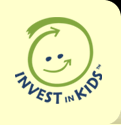When it comes to a child's language development, it's safe to expect that by 24-months, or 30-months at the latest, the average child will be saying 50 different words and/or two-word combinations, such as "throw ball," or "red ball." Although most children can say simple words in their first year and small sentences by age two, some children begin talking at a later age. We don't really know why some children are slower to talk than others, but it does happen. For some children, language can continue to develop without many words. These children may need to have more time to recognize the patterns of language and how to say what they are thinking. For others, particularly children who have older brothers or sisters, a pattern may develop where they let the older children speak for them - reducing the need to speak for themselves. But this doesn't mean the late talker is less intelligent. When your child does start to speak, it may even be at a more advanced level than you'd expect. Although it is better if your child can speak for himself, it's okay to let older children speak for your child, as long as he tries to communicate in some way, like using gestures. No one should shame or criticize your child for not being able to talk - it's something he can't help. If you find that your child makes no attempt to speak by 18 months, doesn't use many gestures to communicate, or seems to have trouble understanding what is said, discuss this with your child's physician, or call the Canadian Association of Speech-Language Pathologists and Audiologists at 1-800-259-8519.
| 
